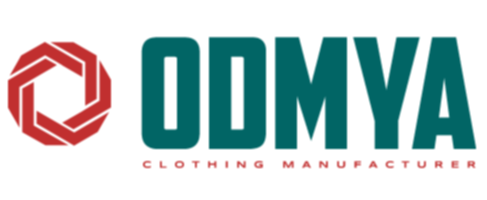Unmasking Chinese Clothing Suppliers: Factories vs. Trading Companies


In the era of globalization, sourcing products from international suppliers has become the norm. China, in particular, is a major hub for apparel manufacturing, offering competitive prices and a wide array of options. However, not all suppliers are created equal. One of the key challenges that buyers face is distinguishing genuine factories from trading companies masquerading as factories. The difference can impact quality, cost, and delivery time, making it critical to confirm you're dealing with a real manufacturer.
So, how do you navigate the complex landscape of Chinese clothing suppliers and ensure that you're partnering with an authentic factory? This comprehensive guide provides 10 effective ways to help you make informed decisions. We'll cover everything from business license verifications to financial background checks and site inspections. By the end of this article, you will have a solid grasp of the tools at your disposal to validate the legitimacy of a Chinese supplier.
The Importance of Verifying Suppliers
Doing business with a trading company instead of a direct factory could lead to several disadvantages that could affect your bottom line and operational efficiency. Some of these issues include:
Quality Control
Trading companies often source their products from multiple suppliers, making it difficult to maintain consistent quality. On the other hand, factories tend to have more stringent quality control processes in place, ensuring a consistent product each time.
Cost Efficiency
Trading companies act as middlemen, marking up the cost of goods to make a profit. By dealing directly with a factory, you are likely to get more competitive prices, thereby boosting your profit margins.
Transparency
Trading companies might not always disclose their supply chain or manufacturing process, making it difficult to assess ethical standards and quality control. Direct factories are usually more transparent about these aspects, allowing you to make more informed decisions.
Customization Options
Factories often have the ability to customize orders, providing flexibility in design, size, and materials. Trading companies are less likely to offer customization, as they usually deal with ready-made products from various sources.
Delivery Time
Due to fewer layers of administration and direct control over the manufacturing process, factories can often deliver orders more quickly than trading companies, which have to coordinate between different parties.
Given these factors, it becomes clear that doing due diligence to verify whether a Chinese supplier is a factory or a trading company can have a lasting impact on your business success.
Research and Documentation
Before diving into business relationships with suppliers, thorough research and documentation checks are imperative. Certain documents can reveal the true nature of the business you're dealing with.
3.1 Business Licenses
All companies in China, be it a factory or a trading company, must be registered and possess a valid business license. However, these licenses also contain information on the type of business a company is authorized to engage in. Here's how to proceed:
- Ask for a Copy: The first step is to request a copy of their business license. This is common practice and a legitimate supplier will have no issue providing it.
- Verify Information: The license will contain a scope of business, which should explicitly mention manufacturing if it's a factory. The information can usually be verified through third-party databases.
- Check Consistency: Ensure that the name of the company on the license matches with all other documentation and correspondence. Inconsistencies could be a red flag.
3.2 Import and Export Licenses
Factories with international business usually have an Import and Export License. While trading companies must have this license by necessity, a factory involved in international trade should have it as well.
- Request and Check: Similar to the business license, ask for a copy and verify its validity.
- Cross-reference: Make sure the company name and other details are consistent across all licenses and documentation.
By conducting these initial checks, you can effectively weed out imposters, saving both time and potential loss of investment. These document checks serve as the first line of defense in ensuring that you're dealing with an authentic manufacturer.
Site Inspections
After the initial document checks, site inspections provide a more hands-on method to authenticate your Chinese clothing suppliers. There are different ways to approach this depending on your resources and needs.
4.1 Factory Audits
Conducting a factory audit is one of the most reliable methods to verify a supplier.
- Physical Visits: If possible, visit the factory yourself. This provides the most direct way to assess the capabilities, scale, and legitimacy of the factory.
- Audit Checklist: Prepare an audit checklist in advance that includes factors like quality control measures, manufacturing capabilities, worker conditions, and certifications.
- Professional Services: If you can't visit yourself, consider hiring a third-party auditing service. They will conduct the audit on your behalf and provide a detailed report.
4.2 Virtual Tours
With the advent of technology, virtual tours have become an alternative or supplementary method for physical inspections.
- Request a Video Call: Platforms like Zoom or Skype can facilitate a live virtual tour of the factory premises. Make sure to schedule this in advance and prepare questions or areas you’d like to focus on.
- Look for Details: During the virtual tour, pay attention to the machinery, work environment, and overall organization. These elements can offer clues about the scale and legitimacy of the operation.
- Cross-reference: Use this opportunity to cross-reference any information you’ve obtained from licenses or previous communications.
While a site inspection requires more effort and investment, it provides a tangible sense of the business you're planning to collaborate with, going beyond what's on paper to offer a fuller picture of the supplier’s operations.

Assess Manufacturing Capabilities
Once you're comfortable with the legal and operational facets of a supplier, it's time to focus on their manufacturing prowess. This will further help in ascertaining whether you're dealing with a factory and not a trading company.
5.1 Machinery and Equipment
The type and quality of machinery can give you an idea of the factory's capabilities.
- Ask for a List: A genuine factory should be able to provide a list of their machinery, including specifications and even brands.
- Assess Relevance: Ensure that the machinery aligns with the type of clothing you intend to produce. For instance, specialized machines for embroidery or dyeing should be present if that's crucial for your products.
- Machinery Maintenance: Check or inquire about the maintenance schedule of the machinery. Well-maintained machines can indicate a well-run factory.
5.2 Production Capacity
Understanding the production capacity is vital for assessing whether the factory can meet your demands.
- Get Data: Ask for figures like monthly output, lead times, and maximum production capacity.
- Check for Scalability: If you plan to increase orders in the future, it's essential to know whether the factory can scale up their operations accordingly.
- Past Performance: If possible, look into their production history to see if they have maintained consistent output. Fluctuations might indicate issues with management or resources.
Assessing manufacturing capabilities is an essential part of the verification process because it directly impacts your order's quality and timely delivery. This can also act as a final confirmatory check to ensure that you're dealing with an actual factory.
Financial Background Checks
A supplier’s financial stability is paramount in ensuring a fruitful long-term relationship. If a factory is financially secure, there’s less risk of operational interruptions that could impact your supply chain.
6.1 Credit Reports
- Financial institutions and third-party agencies offer credit reports on businesses, which can be insightful.
- Purchase a Report: Various agencies provide credit reports on Chinese companies. This document will give you an idea of their financial health.
- Assess the Data: Look for positive or negative trends in revenue, debt ratios, and other financial indicators.
- Trust but Verify: While credit reports are helpful, they should be part of a broader due diligence strategy rather than a sole deciding factor.
6.2 Bank References
Another approach to gauge a company's financial stability is through bank references.
- Request References: Ask the supplier for bank references or statements. While this is a bit of a sensitive topic, a transparent company shouldn’t have a problem complying.
- Contact the Bank: If you are given references, take the additional step of verifying them by contacting the bank directly.
- Be Cautious: It's important to be respectful and professional when requesting and handling such sensitive information.
Financial background checks are an often overlooked yet critical component of the supplier verification process. Given that financial instability can jeopardize your own operations, it's vital to ensure your supplier is in a sound financial position.
Evaluate Communication and Professionalism
As with any business relationship, communication and professionalism are often indicative of a company's legitimacy and operational maturity. These factors can give you an extra layer of assurance when verifying a Chinese clothing supplier.
Effective Communication
- Response Time: Take note of how quickly the supplier responds to your inquiries. A delay could signify a lack of customer focus or an overreliance on intermediaries.
- Clarity: Are their responses clear and informative, or do they evade your questions? Lack of clarity can be a red flag.
- Language Skills: While it’s not a definitive indicator, the ability to communicate proficiently in English might suggest a more globally experienced operation.
Professionalism
- Documentation: Well-organized and promptly delivered documentation often correlates with an equally organized manufacturing operation.
- Commitment to Deadlines: Timeliness in samples and initial dealings can be a good indicator of future performance.
- Problem-solving: Note how the supplier reacts to problems or challenges. Do they offer solutions or shy away from responsibility? The latter could signify issues down the line.
Good communication and a professional approach are not just perks but essential traits that can help you distinguish a genuine factory from a trading company. Often, trading companies lack direct control over manufacturing timelines, quality, and problem-solving, making these indicators a useful part of your overall evaluation strategy.
Use Third-Party Verification Services
Sometimes it's advantageous to enlist external help in the verification process. Third-party verification services specialize in conducting background checks and assessments to confirm a company's legitimacy. These services can provide an additional layer of security and assurance.
Types of Third-Party Services
- Quality Control Services: These agencies conduct on-site quality checks at various stages of the manufacturing process. This is especially helpful if you can't be there physically.
- Background Check Services: Specialized agencies can provide detailed reports on a company’s financials, legal standing, and business operations.
- Certification Verification: Some services can verify the authenticity of any certificates or awards that the supplier claims to hold.
Advantages of Using Third-Party Services
- Expertise: These agencies specialize in verification and will know what to look for, saving you time and potentially money in the long run.
- Neutrality: Being independent, they are unbiased in their assessments.
- Global Standards: These agencies often operate based on international standards, ensuring a level of scrutiny that might be higher than local norms.
Points to Consider
- Cost: These services are not free, and their cost should be factored into your overall budget.
- Reputation: Before choosing a service, conduct your own background check on them to ensure their legitimacy and effectiveness.
- Scope: Be clear about what you want to be checked or verified to ensure the service meets your specific needs.
Third-party verification services can add an extra layer of confidence in your decision-making process. They can provide specialized, impartial insights that you might not be able to acquire otherwise.
Check Previous Partnerships and References
A supplier's past and current business relationships can offer invaluable insights into their reliability and legitimacy. A history of successful partnerships is often a strong indicator that you're dealing with a reputable factory.
9.1 Request References
- Ask Directly: Do not hesitate to ask the supplier for business references. A credible factory will have no problem sharing this information.
- Industry Relevance: Ask for references that are relevant to your industry. If they have successfully served businesses similar to yours, it's a good sign.
- Verify: Once provided, make the effort to contact these references to ask about their experience with the supplier.
9.2 Public Records and Online Reviews
- Check Online: Use platforms like Alibaba or industry-specific forums to see if the supplier has reviews or a rating.
- Look for Red Flags: Consistently poor reviews or complaints related to quality, delivery, or service should be taken seriously.
Contact Reviewers: If possible, reach out to the reviewers for a more detailed account of their experience.
9.3 Industry Recognition
Awards and Certifications: Has the supplier received any awards or certifications from industry bodies? Such recognitions add to the supplier’s credibility.
Participation in Trade Shows: Being a regular participant in industry trade shows can also indicate a legitimate and established business.
Checking previous partnerships and gathering references can serve as your final seal of approval, confirming that the supplier has a history of delivering on their promises.
Conclusion and Final Recommendations
Congratulations! You've gone through a thorough journey of understanding how to verify Chinese clothing suppliers. Let's recap the key steps and offer some parting advice.
Summary of Key Steps
- Initial Contact and Inquiries: Start with basic questions to gauge their capabilities and willingness to provide information.
- Research and Documentation: Request and validate business licenses and other pertinent documents.
- Site Inspections: A physical or virtual tour provides a firsthand look into the supplier's operations.
- Assess Manufacturing Capabilities: Delve into the supplier's machinery, equipment, and production capacity.
- Financial Background Checks: Examine credit reports and bank references to gauge financial stability.
- Evaluate Communication and Professionalism: How a supplier communicates and handles business interactions can indicate their legitimacy.
- Use Third-Party Verification Services: For an extra layer of scrutiny, employ the services of external agencies.
- Check Previous Partnerships and References: A credible supplier should have a history of successful business relationships.
Final Recommendations
- Start Small: Before placing a large order, consider starting with smaller quantities to test the supplier's capabilities and reliability.
- Continuous Monitoring: Verification is not a one-time process. Continuous monitoring and reassessment are essential for a successful, long-term relationship.
- Legal Safeguards: Always draft comprehensive contracts that include exit clauses should the supplier fail to meet obligations.
- Human Element: Never underestimate the value of gut instinct. If something feels off, it probably is.
By following these multi-faceted steps to verify your Chinese clothing supplier, you're not just securing a transaction but fostering a potentially long-lasting and fruitful business relationship. Ensuring that you're partnering with a genuine factory, rather than a trading company, can be the difference between success and setbacks in the highly competitive world of fashion retail.
And there you have it—a comprehensive guide on verifying Chinese clothing suppliers. By adhering to these steps, you can navigate the intricate yet rewarding landscape of international trade with greater confidence and security. Thank you for reading, and best of luck in your business endeavors!
Frequently Asked Questions (FAQs)
1. Why is it important to verify that a Chinese supplier is a factory and not a trading company?
Verifying the nature of your supplier ensures that you are dealing directly with the source of manufacturing. This can lead to better quality control, more competitive pricing, and a stronger, more transparent business relationship.
2. How can I validate a supplier's business license?
You can request a copy of the business license and verify its authenticity through Chinese corporate databases or third-party verification services. You can also cross-check the details provided, such as the registered address and business scope.
3. What should I focus on during a site inspection?
During a site inspection, pay close attention to the facility's machinery, employee workstations, storage areas, and safety protocols. This will give you valuable insights into their manufacturing capabilities and operational standards.
4. Are third-party verification services reliable?
Most third-party verification services are reliable if they have good reviews and a proven track record. However, it's advisable to conduct some research before choosing one to ensure they meet your specific needs.
5. Can I trust online reviews and ratings of suppliers?
Online reviews can be a useful starting point, but they should not be the only factor in your decision-making process. Always conduct your own due diligence, such as checking references and financial stability, for a well-rounded evaluation.





-500x500.jpg)
-500x500.jpg)
-500x500.jpg)
-500x500.jpg)
-500x500.jpg)